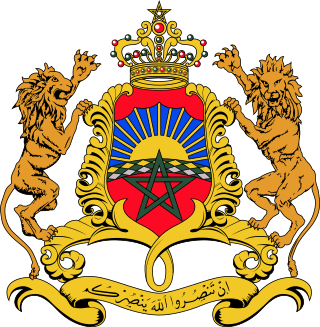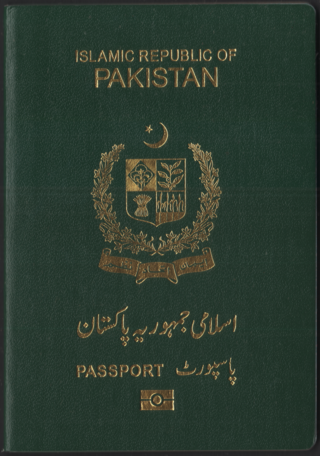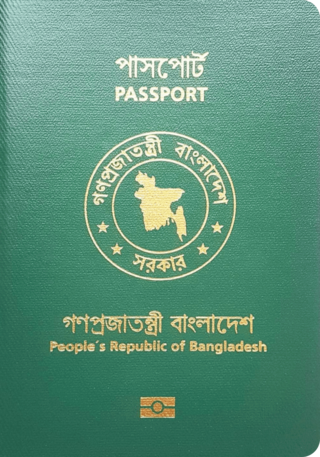 |
|---|
Visitors to Mali must obtain a visa from one of the Malian diplomatic missions unless they come from one of the visa exempt countries. [1] [2] [3] [4]
 |
|---|
Visitors to Mali must obtain a visa from one of the Malian diplomatic missions unless they come from one of the visa exempt countries. [1] [2] [3] [4]

Citizens of the following countries and territories can visit Mali without a visa: [5] [1]
|
|
| Date of visa changes | ||
|---|---|---|
Holders of diplomatic and service category passports of Brazil, China, Cuba, Russia and Rwanda do not require a visa for a maximum period of 90 days.
Nationals of any country with a diplomatic and service passports do not require a visa for a maximum period of up to 1 month.
Nationals of China holding passports for public affairs do not require a visa for a maximum stay of 90 days.
Visa exemption agreement for diplomatic, service, official passports was signed with South Africa but not yet ratified. [7]
Nationals of the following 2 countries may apply for a visa on arrival for a maximum stay of 3 months. [8] Up until 9 March 2015, many countries were also eligible for visa on arrival:
Entry and transit is refused to Syria nationals, even if not leaving the aircraft and proceeding by the same flight. [1] [9]
Most visitors arriving to Mali for tourism purposes were from the following countries of nationality: [10] [11]
| Country | 2014 | 2013 |
|---|---|---|
| 31,580 | 21,717 | |
| 8,308 | 7,464 | |
| 7,632 | 6,432 | |
| 4,479 | 3,946 | |
| 3,793 | 3,402 | |
| 3,508 | 3,816 | |
| 3,201 | 2,687 | |
| 2,299 | 637 | |
| 2,036 | 1,582 | |
| 2,003 | 1,707 | |
| Total | 110,529 | 85,315 |

Burundi's relations with its neighbours have often been affected by security concerns. Hundreds of thousands of Burundian refugees have at various times crossed to neighboring Rwanda, Tanzania, and the Democratic Republic of the Congo. Hundreds of thousands of Burundians are in neighboring countries as a result of the ongoing civil war. Most of them, more than 340,000 since 1993, are in Tanzania. Some Burundian rebel groups have used neighboring countries as bases for insurgent activities. The 1993 embargo placed on Burundi by regional states hurt diplomatic relations with its neighbors; relations have improved since the 1999 suspension of these sanctions.

Morocco is a member of the United Nations and belongs to the African Union, Arab League, Arab Maghreb Union (UMA), Organisation of Islamic Cooperation (OIC), the Non-Aligned Movement and the Community of Sahel-Saharan States (CEN-SAD). Morocco's relationships vary greatly between African, Arab, and Western states. Morocco has had strong ties with the West in order to gain economic and political benefits. France and Spain remain the primary trade partners, as well as the primary creditors and foreign investors in Morocco. From the total foreign investments in Morocco, the European Union invests approximately 73.5%, whereas the Arab world invests only 19.3%. As of 2009, many countries from the Persian Gulf and Maghreb regions are also becoming more involved in large-scale development projects in Morocco.

A visa is a conditional authorization granted by a polity to a foreigner that allows them to enter, remain within, or leave its territory. Visas typically include limits on the duration of the foreigner's stay, areas within the country they may enter, the dates they may enter, the number of permitted visits, or if the individual can work in the country in question. Visas are associated with the request for permission to enter a territory and thus are, in most countries, distinct from actual formal permission for an alien to enter and remain in the country. In each instance, a visa is subject to entry permission by an immigration official at the time of actual entry and can be revoked at any time. Visa evidence most commonly takes the form of a sticker endorsed in the applicant's passport or other travel document but may also exist electronically. Some countries no longer issue physical visa evidence, instead recording details only in immigration databases.

Visa requirements for Croatian citizens are administrative entry restrictions by the authorities of other states placed on citizens of Croatia.
As of January 2024, Croatian citizens had visa-free, eTA or visa-on-arrival access to 184 countries and territories, ranking the Croatian passport 11th in the world, according to the methodology of Henley Passport Index and the information provided by the U.S. Customs and Border Protection.

Visa requirements for Pakistani citizens are administrative entry restrictions imposed on citizens of Pakistan by the authorities of other states. As of December 2023, Pakistani citizens had Visa free, visa-on-arrival and eVisa access to 77 countries and territories. All of the updated links and visa-related requirements can be found listed in the chart below. Pakistani passport holders that hold multi-entry visas or permanent residency permits in certain European countries, Canada, USA, GCC states or Australia may grant the ability to apply for eVisas to certain nations, as well as Visa on Arrival access that they would not have without visas to these nations. The Pakistani passport is currently ranked 102nd in terms of travel freedom according to the Henley Passport Index in the third Quarter of 2023.

Visa requirements for Bangladeshi citizens are administrative entry restrictions imposed on citizens of Bangladesh by the authorities of other countries. As of 1 January 2024,
As of 2024, Bangladeshi citizens had visa-free or visa on arrival access to 42 countries and territories, ranking the Bangladeshi passport 97th in the world according to the Henley Passport Index.
Bangladeshi citizens who hold diplomatic passports and / or official passports of Bangladesh have visa free or visa on arrival access to many more countries.

Visa requirements for Dutch citizens are administrative entry restrictions by the authorities of other states placed on citizens of the Netherlands, the joint nationality of the four countries within the Kingdom of the Netherlands. As of January 2024; Dutch citizens had visa-free or visa on arrival access to 192 countries and territories, ranking the Dutch passport 3rd in terms of travel freedom according to the Henley Passport Index.
The visa policy of Malaysia consists of the requirements for foreign nationals to travel to, enter, and remain in Malaysia. Most visitors to Malaysia are granted visa-free entry for a period of 90, 30, or 14 days respectively. However, nationals from some countries must first obtain a visa from one of the Malaysian Diplomatic Missions before being allowed into the country. All visitors must hold a passport valid for at least 6 months.
The visa policy of Kosovo deals with the requirements which a foreign national wishing to enter Kosovo must meet to obtain a visa, which is a permit to travel to, enter and remain in Kosovo.

Most visitors to Cambodia must obtain a visa, either on arrival or online, unless they are citizens of one of the visa-exempt countries. All visitors must have a passport valid for at least 6 months and containing at least 1 empty page. All foreign citizens must hold a return or onward ticket.

The Republic of Rwanda, a member of the East African Community, allows citizens of all countries that are not visa exempt to obtain a visa on arrival. In addition, they may also obtain an e-Visa online before departure.
All visitors must hold a passport valid for at least six months with at least one empty page. Kenyans and Ugandans may use an ID card in lieu of a passport to enter Rwanda.

Visitors to Benin must obtain a visa from one of the Beninese diplomatic missions or apply for an electronic visa, unless they come from one of the visa exempt countries.

Visitors to Burkina Faso must obtain a visa from one of the Burkina Faso diplomatic missions unless they come from one of the visa exempt countries or a country whose citizens may obtain a visa on arrival.

Visitors to the Republic of the Congo must obtain a visa from one of the Republic of the Congo diplomatic missions unless they come from one of the visa exempt countries or countries that can obtain a visa on arrival.

Visitors to Ivory Coast must obtain a visa from one of the Ivorian diplomatic missions unless they come from one of the visa-exempt countries. All visitors must hold a passport valid for at least 6 months.

Visitors to Ghana must obtain a visa from one of the Ghanaian diplomatic missions unless they come from one of the countries or territories that are either visa exempt or whose citizens may obtain a visa on arrival.

Most visitors to Mauritania may obtain a visa on arrival to Mauritania, unless they are a national of one of the visa-exempt countries.

DR Congo–France are the bilateral diplomatic relations between the Democratic Republic of the Congo and France. Both nations are members of the Organisation internationale de la francophonie and the United Nations.